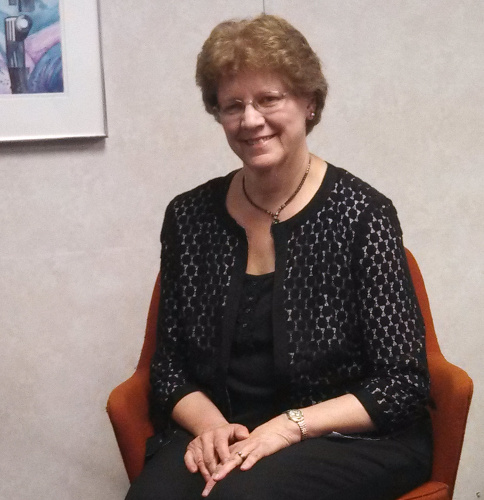Family
Is your health insurance good for you?

Imagine that you don’t feel well. You have had nausea and vague abdominal pain for a week, and you notice that your belt is getting tighter. You have not seen a doctor in a while and sense something could be seriously wrong. So what do you do?
Here are two possibilities:
Option One: Obamacare
You pull out the insurance card that you got through the ObamaCare exchange—a card that made you feel secure as you got it at a great discount because of government subsidies. You read the fine print that sends you to the insurance company website. You find the list of “preferred providers” and begin making phone calls. After going through 15 numbers and being told that the doctor is not taking new patients, you finally find an office that gives you an appointment a month away. Frustrated and increasingly alarmed, you go to the emergency room, thinking that your insurance will cover it. They do a host of tests and finally determine that you have some sort of virus and that you have put on weight due to recent overeating.
You are reassured and relieved. A few weeks later you get a bill for $8,000. Your ObamaCare insurance negotiated that down from $12,000, and you are grateful for that. But since your deductible is $8,000, you will begin to pay $100 per month for many years to come.
Option Two: Self-pay
You call the doctor you have seen through the years. He was there when you developed diabetes and was able to get it under control quickly. Same with your blood pressure. He is the one who convinced you to stop smoking. You pick up the phone to make an appointment, and the friendly receptionist, who knows your name, says you can come in the next day. You get to the office where the staff greets you, asks about your family, and does not make you fill out the same long form with all your insurance information—again. This doctor does not belong to any network and does not take any insurance. He can focus on what you need, being mindful that you will be paying for tests and medicines out of pocket.
Since you have an $8,000 deductible, chances are your insurance won’t help. Once in the exam room, the doctor takes time to listen to you and examine you, and thoughtfully considers what your signs and symptoms might mean. He does an EKG, draws some blood, and assures you that the lab bill you will get will be less than $100. He might order an ultrasound or a CT scan and tell you where these can be obtained at a very reasonable cash price. You pull out your credit card, check book, or health savings account debit card and pay a very reasonable fee for his services–much less than your most recent car repair bill.
Good health, physical and financial
You are thankful and reassured that you are in good hands. You get the test and a few days later, he lets you know that your hemoglobin A1C is a bit high and that you need to lose some weight and restrict your sugar and carb intake to better control your diabetes. He also reassures you that the CT scan did not show any abnormality. A few days out you are feeling much better without any new medication.
A proper health care alternative
These are two choices that are very real, and any thoughtful person would choose the second. In a perfect world, you would have an insurance card that you could tuck away, reserved for BIG medical events. What if this had been cancer or your nausea and abdominal pain were actually a heart attack? The best insurance would be affordable and would only kick in when you need it for a major medical event, perhaps at $5,000.
Meanwhile, the best medical care is obtained from an independent personal doctor that you can actually keep, no matter what the legislators in Washington, D.C., decide is best for you.
Reprint from AAPS Online
Biography
Dr. Alieta Eck graduated from the Rutgers College of Pharmacy and the St. Louis University School of Medicine in St. Louis, MO. She studied Internal Medicine at Robert Wood Johnson University Hospital in New Brunswick, NJ and has been in private practice with her husband, Dr. John Eck, MD in Piscataway, NJ since 1988, affordablehealthinc.org. She has been involved in health care reform since residency and is convinced that the government is a poor provider of medical care.
- Dr. Eck testified before the Joint Economic Committee of the US Congress in 2004 about better ways to deliver medical care in the United States. In 2011, she testified before a Senate Health Committee chaired by Senators Bernie Sanders and Rand Paul– about ways to avoid non-urgent visits to the emergency rooms.
- In 2003, she and her husband founded the Zarephath Health Center, a non-government free clinic for the poor and uninsured that currently care for about 300 patients per month utilizing the donated services of volunteer physicians and nurses. It is only open 12 hours per week. zhcenter.org
- She is working to pass NJ S239, a bill that would provide medical malpractice protection for the private practices of physicians who donate 4 hours per week in a clinic like the ZHC. njaaps.org
Political accomplishments
- Dr. Eck served as the 2012 President of the Association of American Physicians and Surgeons and serves on the board of Christian Care Medi-Share, a faith based medical cost sharing ministry.
- She was the Republican nominee for the US Congress for NJ12 in 2014.
- In March, 2015, she chaired a meeting of the National Physicians Coalition for Freedom in Medicine, about 30 physicians, who gathered in Washington, DC to draft a “One-Page Plan” to restore affordability, promote patient choice and retain quality in medical care. https://aaps.wufoo.com/forms/m
- Dr. Eck spoke at the National Press Club in Washington, DC in June, 2016 to help unveil the Wedge of Health Freedom, an initiative of the Citizens’ Council for Health Freedom, with President Twila Brase.
Dr. Alieta Eck, MD, (New Jersey), graduated from the Rutgers College of Pharmacy in NJ and the St. Louis School of Medicine in St. Louis, MO. She studied Internal Medicine at Robert Wood Johnson University Hospital in New Brunswick, NJ and has been in private practice with her husband, Dr. John Eck, MD in Piscataway, NJ since 1988. She has been involved in health care reform since residency and is convinced that the government is a poor provider of medical care. She testified before the Joint Economic Committee of the US Congress in 2004 about better ways to deliver health care in the United States. In 2003, she and her husband founded the Zarephath Health Center, a free clinic for the poor and uninsured that currently cares for 300-400 patients per month utilizing the donated services of volunteer physicians and nurses. Dr. Eck is a long time member of the Christian Medica l Dental Association and in 2009 joined the board (and is a former President) of the Association of American Physicians. In addition, she serves on the board of Christian Care Medi-Share, a faith based medical cost sharing Ministry. She is a member of Zarephath Christian Church and she and her husband have five children of which one is an ophthalmology resident in St. Louis in NJ. Dr. Eck ran in the Special Republican Primary for the US Senate from New Jersey in August, 2013, garnering 27,000 votes in a 2 month campaign. She is contemplating another run for political office in 2014.
-

 Accountability3 days ago
Accountability3 days agoWaste of the Day: Principal Bought Lobster with School Funds
-

 Constitution2 days ago
Constitution2 days agoTrump, Canada, and the Constitutional Problem Beneath the Bridge
-

 Executive1 day ago
Executive1 day agoHow Relaxed COVID-Era Rules Fueled Minnesota’s Biggest Scam
-

 Civilization5 hours ago
Civilization5 hours agoWhy Europe Shouldn’t Be Upset at Trump’s Venezuelan Actions
-

 Civilization1 day ago
Civilization1 day agoThe End of Purple States and Competitive Districts
-

 Christianity Today4 hours ago
Christianity Today4 hours agoSurprising Revival: Gen Z Men & Highly Educated Lead Return to Religion
-

 Civilization5 days ago
Civilization5 days agoThe devil is in the details
-

 Executive4 days ago
Executive4 days agoTwo New Books Bash Covid Failures













